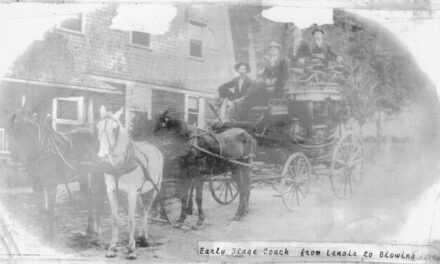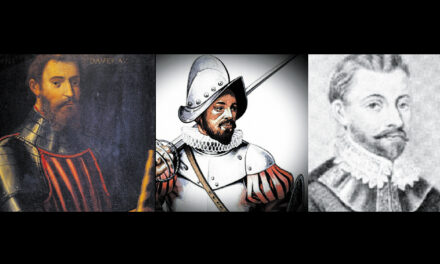
Unless you live somewhere in North Carolina you may not even know what it means when the Meck Dec is mentioned. That shorthand stands for the Mecklenburg Declaration of Independence. It was reported to be a document ratified by a group of leading citizens of Mecklenburg County, declaring full independence from Great Britain on May 20, 1775.
Note the date. These guys in Charlotte stood up to the crown, King George III over a year before the group that constituted our national government did it in July of 1776. The Mecklenburg document was sent to the Second Continental Congress as a way to spur them to the same action. Charlotte even has a statue of Captain James Jack carrying the groundbreaking legal paper, signed by a group of brave Patriots, north to Philadelphia where the 13 colonies were in session. As it turned out, North Carolina was ahead of the Whig curve, way ahead.
Then why doesn’t the Tarheel state get credit as the “First In Freedom” state? Because we can’t find it, that’s why. There is no authenticated copy that survives and without physical evidence, nobody (outside of North Carolina, and some in) takes it seriously.
When Captain Jack got to Philly and gave the document to the NC delegation, they said “too soon.” At the time the Second Continental Congress was attempting to explain why shots had been fired against the British at Lexington, which kicked off the war. The Olive Branch Petition was being crafted by Congress in hopes of reconciliation. Not down in Charlotte. Those Presbyterian Scots were done with British rule and they said so, in terms that would be echoed a year later when Jefferson penned his famous words about “life, liberty and the pursuit of happiness.” Or did he?
Mecklenburg leaders like John McKnitt Alexander, when he tried to recall what the Meck Dec actually said, used some of the same words as Thomas Jefferson, asking the question of who stole from whom. Years later, when Jefferson heard about the early version of the U.S. declaration of freedom, he called the document “spurious,” an 18th century term for ‘that’s BS.’
A controversy arose in the early 19th century about the Meck Dec because even then, there was no authenticated copy available. The only known version had supposedly burned in a fire around 1801. Alexander put together his recollections and others testified to its existence but without a confirming piece of paper, the Meck Dec had no support outside of the state. Some even said North Carolinians confused it with the Mecklenburg Resolves, which fell short of actually declaring independence, but were ratified eleven days later.
So, was it real? John Adams said yes, maybe, though he did not hear about it at the time Captain Jack delivered the Declaration in mid-June 1775. He and Jefferson sparred over it in their late-career letters back and forth. NC liked the idea so much that it’s one of two dates found on the state flag. The other is for the Halifax Resolves of later. Still today, some say yes, others no. Celebrations in Charlotte will occur this May 20th. Outside NC, not so much.
A book on the subject is an excellent way to understand the context of the time, along with the evidence for and against. Charlotte attorney Scott Syfert is the author of The First American Declaration of Independence?: The Disputed History of the Mecklenburg Declaration of Independence, May 20th, 1775 by McFarland Press. He uses a lawyers precision to argue the case. You be the judge and if so inclined, begin your Fourth of July celebrating on May 20th.
Photo: The North Carolina state flag with May 20, 1775 proudly emblazoned on it and a Charlotte statue to Captain Jack, carrying the Meck Dec to the Second Continental Congress.









